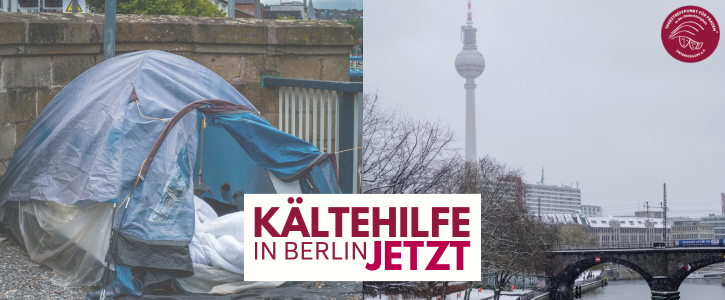News from Berlin
Number of drug deaths in Berlin at a new high
In Berlin, 294 people died from the use of illegal drugs last year, as mentioned at a press conference on 7 July, held by the Federal Commissioner for Addiction and Drug Issues, Hendrik Streeck. This is a new high for the capital. According to police crime statistics, there were 271 drug-related deaths in Berlin in 2023. Nationwide the number of drug-related deaths fell slightly last year to 2,137 cases. Nevertheless, 342 deaths related to synthetic opioids were counted in Germany – more than ever before. The 14% increase in deaths among young people in the country under the age of 30 is worrying. Source: rbb
Police investigate possible syringe attacks at the Matrix
Police and fire department were deployed at the Matrix club, where several guests complained of feeling unwell, and two women claimed to have been stabbed in the arm. According to reports, nine people had to receive medical treatment in the club on 26 June. After medical treatment, it was not possible to rule out punctures. Based on the statements of witnesses, the police arrested two men aged 35 and 44 in the vicinity. However, no suspicious objects were found on them, and they were released. The investigation is ongoing, according to the police. Source: rbb
News from Germany
New minimum wage in Germany announced
The German government has announced that on January 1, 2026, the German minimum wage will increase from 12,82 euros to 13,90 euros per hour. A second increase will come on January 1, 2027, when the minimum wage will rise to 14,60 euros per hour. The statutory minimum wage applies to all workers in Germany over the age of 18. During its election campaign, the SPD called for the minimum hourly wage to increase to 15 euros. After the CDU and SPD joined forces following the election, their coalition agreement stated that the 15-euro hourly wage would be “achievable” by 2026. Source: iamexpat
Growth booster: Germany as a business location
Boosting the economy, securing jobs and creating permanently higher economic growth. According to current federal coalition, this is a high-priority goal. To accomplish this, the Federal Cabinet has adopted the “draft law for an immediate tax investment programme to strengthen Germany as a business location”. Specifically, the draft law includes the following points: a) investment booster, with accelerated depreciation of 30% per year for equipment; b) reduction in corporation tax. From 2032, the total tax burden will be under 25%, instead of the current 30 %; c) corporate e-mobility, promoting the use of electric vehicles for business purposes; and d) expansion of the research allowance. Source: bundesregierung
AfD parlimentary members are to be moderate
The AfD parliamentary group’s ‘Code of Conduct’ has been updated to reflect their political strategy: “The members are committed to a united and moderate approach in parliament in order to ensure the political ability to act and the credibility of the parliamentary group.” Party leader Tino Chrupalla has repeatedly stated in recent weeks that members of his party should moderate their tone and made open advances to political competitors. The AfD believes such strategy will open up to new groups of voters. The party is also trying to distance itself from the extremist activist Martin Sellner, probably also out of fear of the impending ban proceedings. Source: taz
Well educated and still looking for a job?
Job seekers are currently having a hard time due to companies are holding back on job advertisements owing to the tense economic situation. Both job portals such as ‘Indeed’ and ‘the Federal Employment Agency’ report that the number of jobs advertised has recently fallen significantly, with 17% fewer vacancies in June this year than in June 2024. At the same time, the number of unemployed people in Germany has risen by almost 190,000. Virginia Sondergeld, economist at Indeed, says that the situation is not completely hopeless. For instance, one can look closely at the areas in which staff are currently still being sought. Source: tagesschau
Pistorius defines criteria for compulsory military service
Federal Defence Minister Boris Pistorius (SPD) has specified his plans for voluntary military service and a transition to compulsory military service. According to “Der Spiegel”, which quotes from a draft bill, service is to become compulsory if it “urgently requires a short-term increase in the armed forces that cannot be achieved on a voluntary basis”. According to that document, the cabinet and the Bundestag are to decide on compulsory recruitment in the event of an intensification of the threat situation, for example. From 2030, Pistorius wants to be able to call up a total force of 460,000 soldiers. Source: tagesschau




